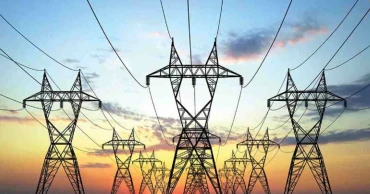BIPPA
Growing backlog in payments to independent producers a bottleneck in power sector
The growing backlog in payment obligation is emerging as a major problem in Bangladesh's power sector that may impede the growth of the sector.
According to official sources, the payment mode in Bangladesh Government's power purchase agreement (PPA) with the private sector has mainly been made in foreign currency, specially, the US dollar.
As per the existing arrangement, as a single payer the state-owned Bangladesh Power Development Board (BPDB) pays to the private power producers in local currency against its purchase of electricity.
Under the PPA, the private power producers are allowed to convert the payments into US dollars to meet their different kinds of payment obligations like bank loan, fuel and machinery imports and also paying foreign staff salaries.
If the investors are foreign companies, they can repatriate their profits in US dollars, said the officials of the BPDB.
They also noted that the BPDB always remains in constant contact with power producers, their banks and the central bank to smooth the foreign currency repatriation.
But following the dollar crisis in the country, official sources said in recent months, both the BPDB and the private power producers have been experiencing severe problems in getting dollars from their banks and also from the Bangladesh Bank.
Official sources said the BPDB has been struggling to keep up with its payments owed to the private power producers for more than a year.
Officials at the Power Division and BPDB said currently the total owed to the Independent Power Producers (IPPs) is $3.5 billion (equivalent to over Tk 35,000 crore) as of September 2023.
Read: Rooppur Nuclear Power Plant to receive fresh batch of uranium from Russia’s Rosatom at ‘Graduation Ceremony’ tomorrow
As per contract with the government, the IPPs are facing dual problems with their bills. First, they are not getting bills on time and secondly, they are getting partial bills, but not being able to convert the payment into foreign exchange due to the dollar crisis.
A top BPDB official admitted the problem to UNB, saying that they had reached an understanding with Bangladesh Bank under a mediation of the Finance Ministry that the central bank will provide on average $20 million every day to BPDB to cover its costs.
“But we’re not getting more than $10-15 million a day,” a top BPDB official told UNB on condition of anonymity as the issue is very sensitive and he is not allowed to speak on the issue.
He also said that if measures are not taken to contain the growing dues in the power sector it will further aggravate the problem.
Read: Japan provides $1500 million to implement Matarbari coal-fired power plant
Admitting about the payment backlog, Imran Karim, former president of Bangladesh Independent power Producers Association (BIPPA), said the government should take necessary measures to clear the dues in the power sector.
"Otherwise, it will accumulate the dues and create a major problem in the sector", he told UNB.
Energy experts said the country is heading for problems in the power sector and it would have a big impact on the overall economy pushing up inflation further.
Eminent energy expert and advisor to the Consumers Association of Bangladesh (CAB) Prof M Shamsul Alam said the government has been put in such a major problem because of its wrong planning in the power sector.
He said that as a result of the wrong planning, the country is witnessing 50 percent surplus power in summer and 70 percent in winter, for which it is heading towards a disastrous situation.
“There will be a big indiscipline in the power sector as pressure for private sector’s capacity payment will continue to go up while import of primary fuel will be increasing. Finally, it will lead to energy insecurity,” he told UNB.
Read more: Cabinet purchase body approves proposals including 3 solar power plants in private sector
2 years ago
IPPs call for uniform import duty on primary fuels
Removal of discrepancies in the import duties imposed on primary fuels, which are used as inputs in power generation, can reduce the government’s subsidies in the power and energy sector.
The notion is being put forward by the private power producers of the country, also known as IPPs (independent power producers).
They are claiming that the discriminatory import taxes on primary fuels - furnace oil (diesel), coal, and gas (LNG) - ultimately favours the coal-fired power plants that projects the government’s biases towards ‘the dirtiest fuel’.
Currently there is a 5 percent duty on the import of coal, which rises to 34 percent on furnace oil, aka heavy fuel oil (HFO), and 22 percent on gas.
Read more: Ilisha-1 country’s 29th gas field: Nasrul Hamid
As a result, the price per MMBtu (metric million British Thermal Unit) of coal comes to Tk 10-11 and when power is generated from coal, it costs Tk 12-13. After adding 5 percent import duty, the cost of electricity from coal-fired power plants becomes Tk 13-14.
On the other hand, the price per MMBtu of HFO comes to Tk 11-12 and the power generation from the HFO costs Tk 11-12 due to its higher heat value. But when the 34 percent import duty on HFO is added, its power generation cost becomes Tk 15-16 per unit.
In the same way, the cost per MMBtu of imported gas is Tk 11-12 and its power generation cost becomes 10-11 due to its higher heat value. But after adding the import duty of 22 percent, the per unit electricity generation cost from gas-fired plants goes up to 13-14 per unit.
“If the discrepancies are removed from duty regime, and import duty on all fuels is made uniform at 22 percent, the production cost of electricity from diesel-fired plants will be lower than that of coal-fired power plants,” said Imran Karim, former president of Bangladesh Independent Power Producers Association (BIPPA), the trade body representing the interests of private power producers.
Read more: Many big industries using illegal gas connections: Nasrul Hamid
Karim, also the vice chairman of Confidence Group, a leading firm in private power generation, said the duty should be uniform considering the government’s commitment to support cleaner fuels - coal being the original dirty fuel. Furnace oil of course is no better.
“The government will receive more revenue from imported fuels, if the duty on all fuels are equalised,” he added.
According to the Power, Energy and Mineral Resources Ministry’s estimate, in the current fiscal 2022-23, the power and energy sector will require over Tk 23,000 in subsidies to cover its losses.
Of this, the power sector will require Tk 18,000 crore while around Tk 6000 crore would go on primary fuels.
Read more: New PSC: Petrobangla awaits final nods to invite int’l bidding for offshore blocks
Earlier, the loss in the sector was estimated much higher at over Tk 70,000 crore due to the excessive price hike of gas, coal and petroleum fuel following the war in Ukraine that began in February 2022.
But after the enhancement of fuel prices on the domestic market by more than 40 percent pn average and power tariff by more than 15 percent, the losses came down and subsequently the requirement for subsidy was also reduced to around Tk 23,000 crore, said officials at the Ministry of Power, Energy and Mineral Resources.
Private power producers claim that if the import duty on coal and furnace oil were made the same as that on gas, i.e. 22 percent, it would reduce overall costs and thus reduce the subsidy as well.
“Because, the power generation by furnace oil-based plants will automatically go down and it will ultimately have an impact on the overall tariff structure in the power sector by seeping through to both the wholesale and retail levels,” said an IPP plant operator.
Read more: Petrobangla initiates move to end foreign company’s monopoly in pre-paid gas metering system
Power Cell director general Mohammad Hossain said that both coal and furnace oil are dirty fuels, so by the IPPs’ logic, the import duty on these two fuels should be higher than on gas - not uniform.
“The import duty on coal and HFO should be equal and import duty on gas could be comparatively lower as it is the cleanest of the three,” he said.
2 years ago
'Repeated power tariff hikes heap misery on people'
Notwithstanding an exponential growth in electricity generation, the repeated power tariff hikes across Bangladesh will only burden the consumers, eminent economist Dr Ahsan H Mansur has said.
5 years ago
Independent power producers start distributing testing kits, PPE
Bangladesh Independent Power Producer’s Association (BIPPA) and private business house Confidnce Group jointly started distributing coronavirus testing kits and personal protective equipment (PPE) for physicians and different institutions including police department.
5 years ago


.jpg)
.jpg)

